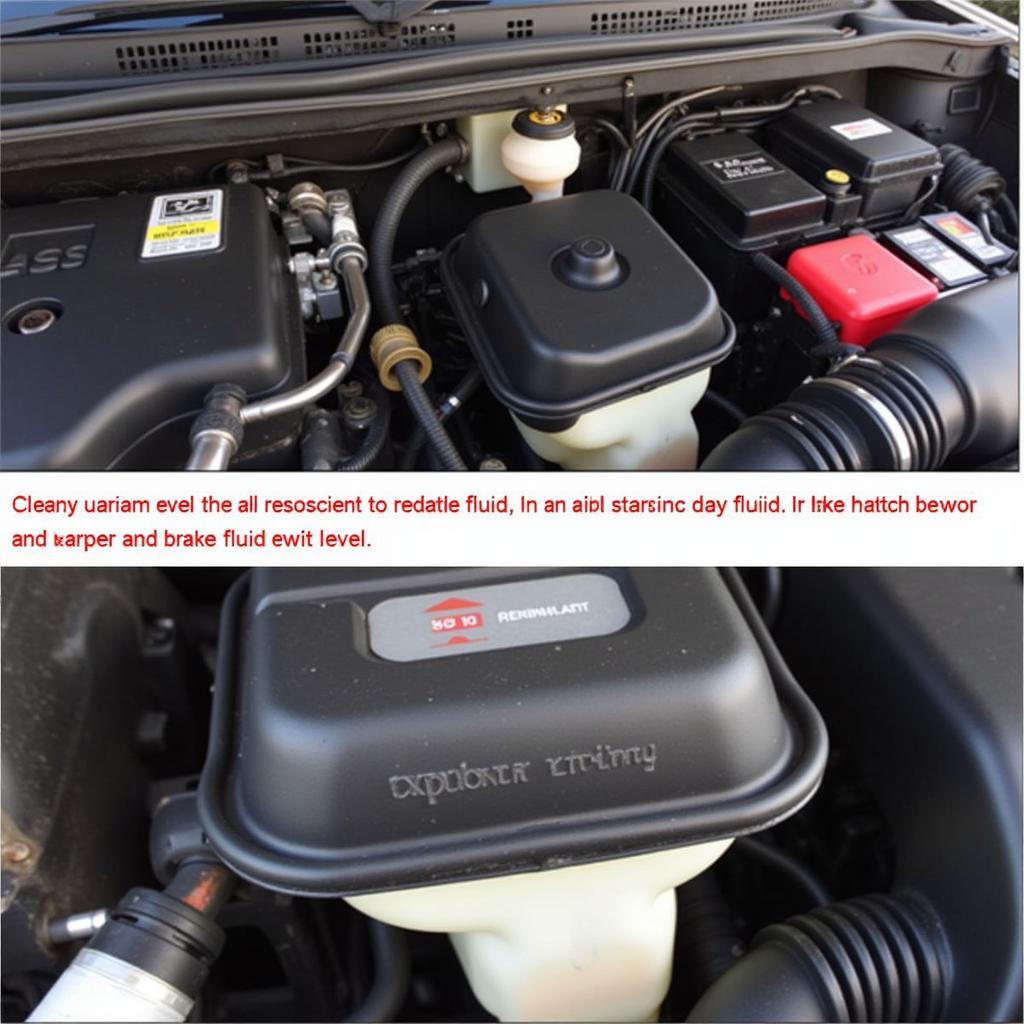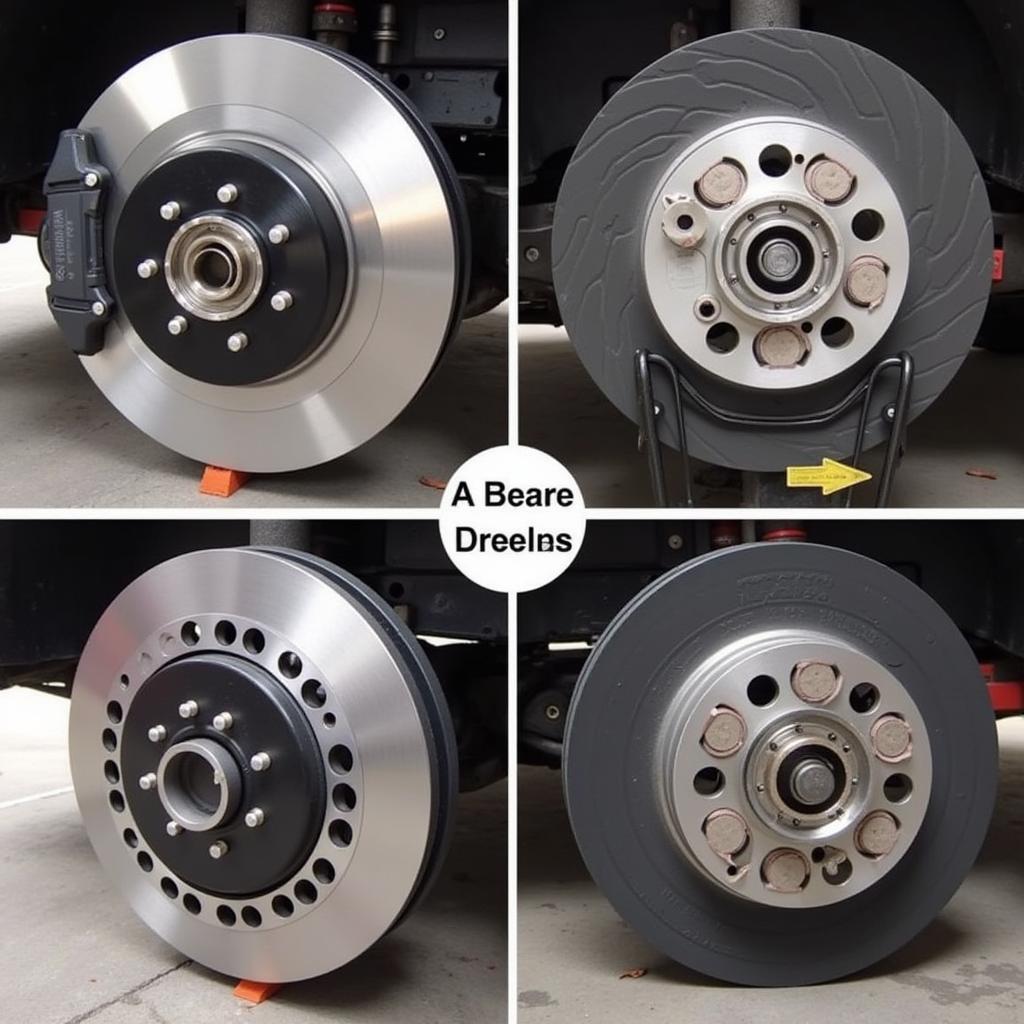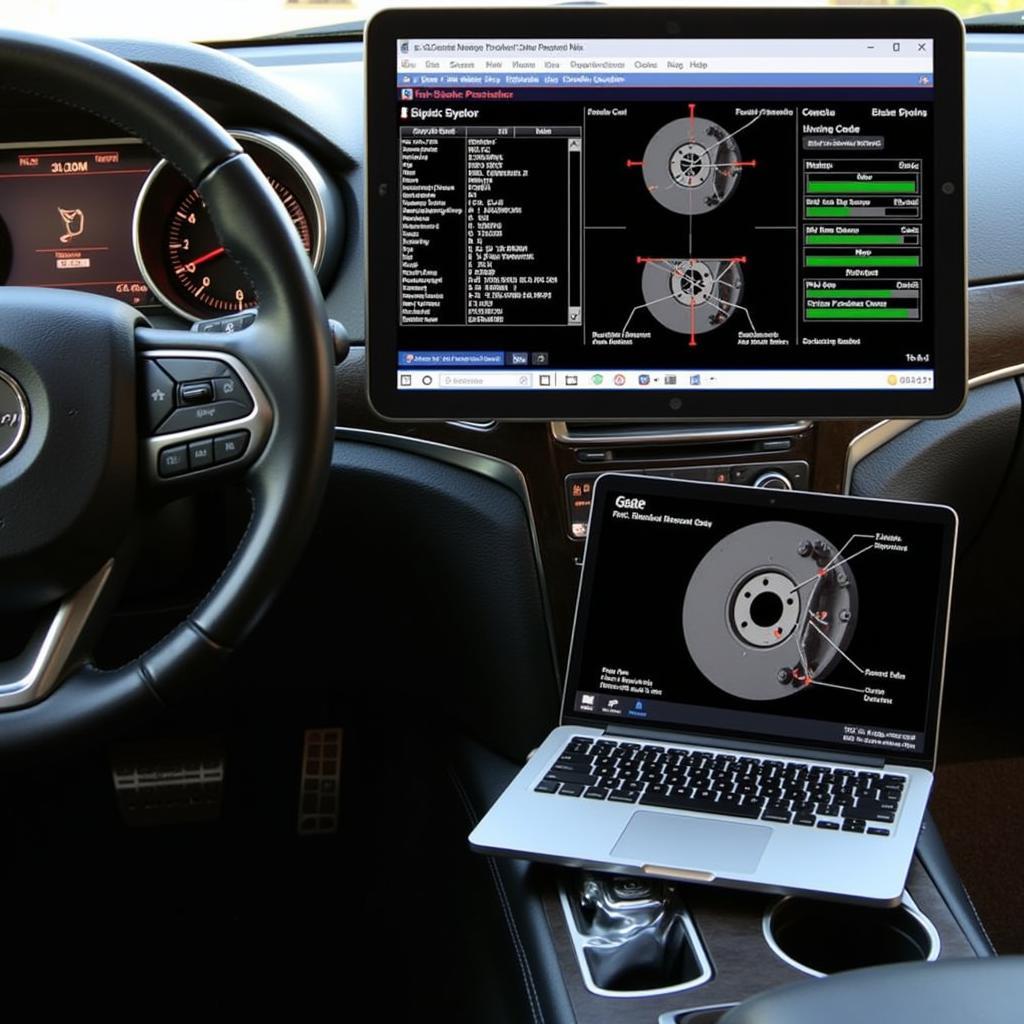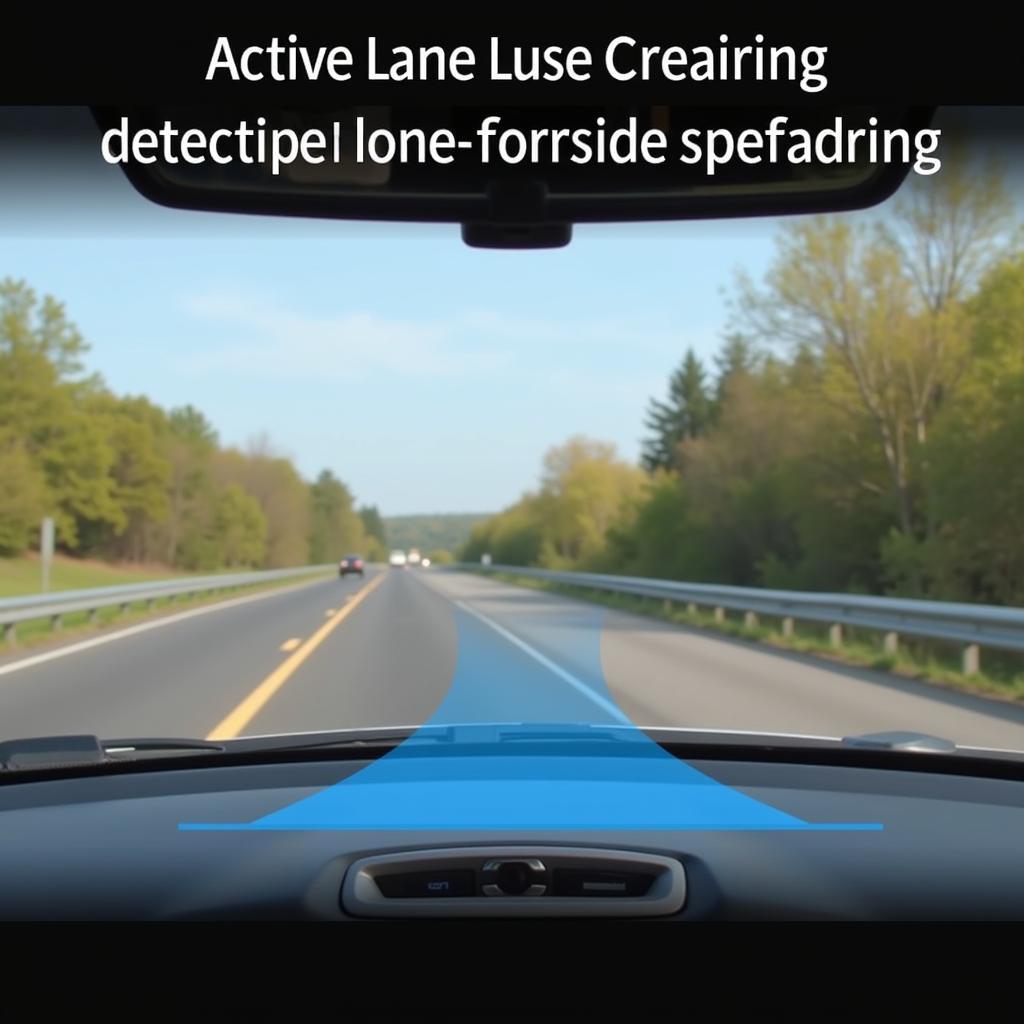The 2014 Jeep Grand Cherokee brake warning light can be a jarring sight, leaving drivers wondering what’s wrong and how to fix it. This comprehensive guide will walk you through the common causes, troubleshooting steps, and solutions for this issue, ranging from simple DIY fixes to more complex situations requiring professional help. We’ll cover everything from low brake fluid to faulty sensors, providing you with the knowledge you need to address this important safety concern.
Understanding Your Jeep’s Brake Warning Light
The brake warning light on your 2014 Jeep Grand Cherokee is part of the vehicle’s safety system. It illuminates to alert you to potential problems within the braking system. This light can indicate various issues, from low brake fluid to more serious problems like a malfunctioning anti-lock braking system (ABS). Ignoring this warning light could compromise your safety and lead to costly repairs down the line.
Common Causes of the Brake Warning Light
There are several reasons why your 2014 Jeep Grand Cherokee brake warning light might come on. Some of the most common causes include:
- Low Brake Fluid: This is often the most straightforward cause. Over time, brake pads wear down, and the brake fluid level drops.
- Worn Brake Pads: Thin brake pads trigger the warning light as a safety precaution.
- Faulty Brake Light Switch: This switch activates the brake lights when you press the brake pedal. A malfunctioning switch can also trigger the brake warning light.
- ABS Issues: Problems with the anti-lock braking system, such as a faulty sensor or pump, can illuminate the warning light.
- Parking Brake Engaged: Sometimes, the simplest explanation is the correct one. Make sure your parking brake is fully disengaged.
 Checking brake fluid level in a 2014 Jeep Grand Cherokee
Checking brake fluid level in a 2014 Jeep Grand Cherokee
Troubleshooting the Brake Warning Light
Here are some steps you can take to troubleshoot the brake warning light on your 2014 Jeep Grand Cherokee:
- Check the Parking Brake: Ensure the parking brake is fully released.
- Inspect Brake Fluid Level: Open the hood and locate the brake fluid reservoir. Check the fluid level and add brake fluid if necessary. Use the correct type of brake fluid specified in your owner’s manual.
- Inspect Brake Pads: Visually inspect your brake pads through the wheel spokes. If they appear thin, they likely need replacing.
- Check Brake Light Operation: Have someone observe the brake lights while you press the brake pedal. If the lights don’t illuminate, the brake light switch might be faulty.
 Inspecting brake pads on a 2014 Jeep Grand Cherokee
Inspecting brake pads on a 2014 Jeep Grand Cherokee
When to Seek Professional Help
While some issues can be resolved with simple DIY fixes, others require professional expertise. If you’ve checked the basics and the brake warning light persists, it’s essential to take your vehicle to a qualified mechanic. This is especially true if you suspect issues with the ABS system, as these can be complex to diagnose and repair.
“A flashing brake warning light often indicates a more serious problem,” says John Miller, a certified automotive technician with over 20 years of experience. “Don’t delay seeking professional help in this case, as it could compromise your safety.”
Remote Diagnostics and Software Solutions
In many cases, remote diagnostics and software solutions can address certain brake system issues. These advanced tools allow technicians to access your vehicle’s computer system remotely, diagnose problems, and even perform software updates or programming adjustments to resolve the issue.
 Remote diagnostics being performed on a Jeep Grand Cherokee's brake system
Remote diagnostics being performed on a Jeep Grand Cherokee's brake system
Conclusion
The 2014 Jeep Grand Cherokee brake warning light serves as a crucial safety indicator. Understanding its potential causes and taking appropriate action is essential for maintaining your vehicle’s safety and preventing costly repairs. By following the troubleshooting steps outlined above and seeking professional help when necessary, you can ensure your Jeep Grand Cherokee remains safe and reliable on the road. Don’t ignore this important warning—address it promptly to ensure your peace of mind and safety behind the wheel.
“Regular brake maintenance, including fluid checks and pad replacements, can prevent many brake warning light issues,” adds Miller. “Preventive maintenance is always the best approach.”
FAQ
- What does a solid brake warning light mean? A solid light usually indicates low brake fluid or worn brake pads.
- What does a flashing brake warning light mean? A flashing light often signifies a more serious problem with the ABS system.
- Can I drive my Jeep if the brake warning light is on? While it might be possible to drive short distances, it’s highly recommended to address the issue immediately to avoid potential safety hazards.
- How often should I check my brake fluid? It’s a good practice to check your brake fluid level every month.
- How often should I replace my brake pads? Brake pad replacement intervals vary depending on driving habits and conditions, but typically every 30,000 to 70,000 miles.
- What type of brake fluid should I use in my 2014 Jeep Grand Cherokee? Consult your owner’s manual for the recommended brake fluid type.
- Can remote diagnostics fix all brake problems? While remote diagnostics can address certain software-related issues, physical problems like worn brake pads will still require hands-on repair.

